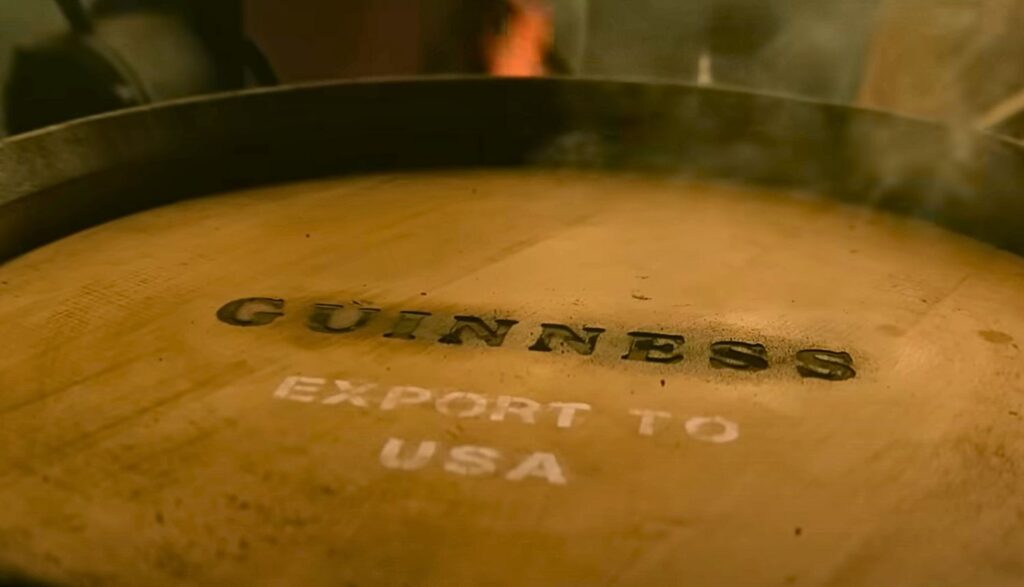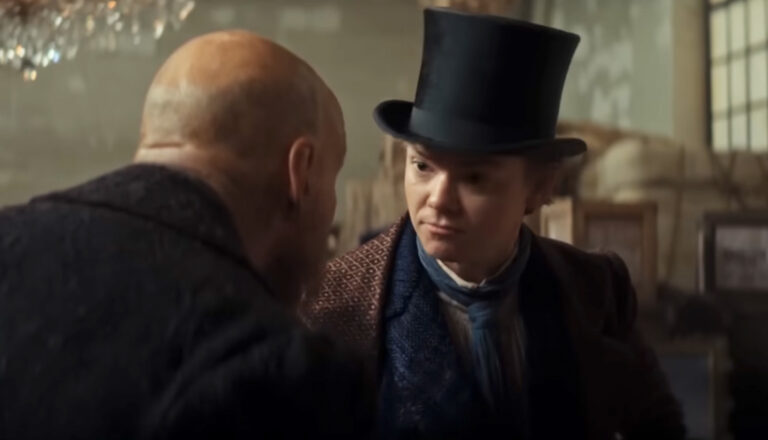
Unfamiliar
Filled with gritty violence and foul language, when it comes to this German spy drama, “unfamiliar” is how most viewers should stay.

The 1868 death of Sir Benjamin Guinness marks an important day for people in Dublin.
As owner of Guinness Brewery, Sir Benjamin was one of Ireland’s most influential, and controversial, figures. Christian groups celebrate his death, hoping it marks the end of alcohol’s prevalence in Ireland. A political group known as the Fenians believes Guinness’ death opens an opportunity for Ireland to become liberated from England. And, of course, Guinness’ four children—Arthur, Edward, Benjamin, and Anne—expect their father’s will and testament will offer critical opportunities for them to expand their fortunes, political power and social influence.
But things don’t go as expected … for anyone.
For one thing, the Guinness will disappoints all four of the children. Due to his drinking problem, the younger Benjamin receives only a small sum of money. Since she’s married, Anne inherits nothing—which stings even more due to some mysterious health complications from which she suffers. And Arthur and Edward must commit to running the brewing business, lest they lose their right to everything.
Fortune, power and influence won’t come as easily to the Guinness heirs as they had hoped.
And for the Fenians, things aren’t much better. The death of Sir Benjamin Guinness—who had been a staunch English loyalist—leaves an open seat in Parliament. One of the Guinness sons will surely take his place, so Fenian leader Ellen Cochrane devises a plan: she would blackmail the next Guinness Parliament member and force him to advocate for a liberated Ireland.
Unfortunately, Ellen’s brother Patrick leads a radical demonstration against the Guinness business, which alerts a dangerous Guinness family ally named Sean Rafferty to her plan. Now Arthur and Edward have time to bury their secrets from public attention.
Irish liberty isn’t as certain as the Fenians assumed.
And if you thought that at least the Christian groups would get their way, think again. This is Ireland, after all. The Guinness beer brews on.
The House of Guinness is predicated, of course, on the real Guinness clan, one of Ireland’s most powerful, celebrated and complex families. While the name is naturally linked to its namesake brewery, it’s also tied to philanthropy and faith. Author and theologian Os Guinness—featured in the Focus on the Family/Colson Center film Truth Rising—would be, I believe, the great grandnephew of Sir Benjamin Guinness. But Os’s own family tree includes a number of evangelists and missionaries, including his parents and grandparents.
Unfortunately, Netflix isn’t much interested in that side of the family. It would rather give its viewers a Gilded Age tale of power, sex and intrigue. It’s a not-so-rare phenomenon nowadays for a TV show to contain nearly every category of concerning content conceivable. Netflix’s House of Guinness is one of these not-so-uncommon shows.
For starters, the Guinness secret that Ellen had hoped to exploit is that Arthur is attracted to other men. Not only does he have a male romantic partner in England, but he also frequently employed the services of male prostitutes. In several episodes, Arthur explores romantic intimacy with other men, including one episode in which he has sex with a man. Although nothing critical is seen during their encounter, it’s quite clear what is happening.
And the other romantic relationships feel just as salacious. Multiple characters are engaged in extramarital affairs, including one couple who gets married with the understanding that both parties would sleep with other people. In one scene, an unmarried man and woman sleep together, and the woman is very briefly seen without a top. Another scene features full-frontal male nudity.
In one episode, a woman suffers a tragic miscarriage, which she fears is a punishment from God for her sin. Another woman has an abortion to end her pregnancy.
Both the Fenians and the Guinness family use violence to get their way. People fire guns and engage in fist fights, which can have bloody results. In one scene, a man brutally beats his captives with a piece of metal, leaving their faces bruised and bloody.
The characters’ use of language intensifies some of the shows other content issues. Harsh profanity, including the f-word, the c-word and misuses of God’s name, is frequently employed.
Characters also use and misuse substances. Benjamin, for instance, almost always has a drink in his hand, and several of the characters smoke. And, as you might expect, family disfunction and political dishonesty are central to the show’s plot.
So while the twists and turns in House of Guinness are certain to keep viewers on the edges of their seats, your house will likely want to find a show with more wholesome content.
(Editor’s Note: Plugged In is rarely able to watch every episode of a given series for review. As such, there’s always a chance that you might see a problem that we didn’t. If you notice content that you feel should be included in our review, send us an email at letters@pluggedin.com, or contact us via Facebook or Instagram, and be sure to let us know the episode number, title and season so that we can check it out.)
It’s the day of Sir Benjamin Guinness’ funeral, and Dublin is in disarray. Religious and political groups disrupt the funeral. The Fenians attempt to leverage his death for political gain. And Guinness family members and allies fight to ensure that their personal interests are protected.
As they prepare Sir Benjamin Guinness’ body for burial, a man sticks pins into the corpse’s face. Both Fenian and Christian groups attempt to disrupt the funeral. The disruption involves people throwing bottles of alcohol at the funeral cart. In this scene, viewers can see the body being jostled around in the funeral cart. Police use whips to make the angry crowd stand down. A group of workers attacks the protesting mob. Punches are thrown, and people—both men and women—get hurt. Some people are beaten with sticks and pieces of metal, and their blood splatters on other people and onto the passing funeral cart. A woman fires a gunshot into the air. A man throws a drink onto his brother, and they start a fist fight. Their sister suggests her brothers should duel to the death. We hear a mention of suicide. A man shares that he wants to murder someone to whom he owes money. A woman threatens a man with a gun. Characters start a fire.
A man is seen with his shirt off. An affair is implied between an unmarried man a married woman. The man seductively flirts with the woman. A man makes a crude allusion to sex. A woman forces a man to undress in front of her—though nothing critical is seen. She also makes a reference to male anatomy. It is implied that a character frequently uses the services of prostitutes.
There are over 20 uses of the f-word, several uses of “h—” and misuses of God’s name.
A Christian group burns an effigy of Sir Benjamin Guinness. They refer to him as a “fallen idol,” and some protesters hold signs at his funeral that read, “God wills it.” The group’s leader asserts that Sir Benjamin Guinness will not enter heaven. A man jokingly claims, “All horses are Catholic.” There is a brief discussion about gods from Irish and Greek mythology. Characters make fun of their uncle’s Christian faith.
A man drinks alcohol in the streets. It is briefly implied that a character is using drugs. Several characters smoke.


Filled with gritty violence and foul language, when it comes to this German spy drama, “unfamiliar” is how most viewers should stay.

Oliver Twist’s Artful Dodger isn’t 13 anymore: He’s an adult. And being an adult comes with more grown-up problems.

Though it’s compelling, the content concerns in Prime Video’s ‘Cross’ might be enough to cross it off your watch list.

‘The ‘Burbs’ is Peacock’s attempt to adapt the 1989 movie of the same name. But a fresh coat of paint doesn’t hide the content issues.